SPONSORED BY:

HEDGE WEEK


SPONSORED BY:

HEDGE WEEK

HEDGEWEEK-AIMA MID-YEAR ALLOCATOR SENTIMENT REPORT 2025 JULY
The first half of 2025 has been a masterclass in geopolitical volatility, with hedge fund managers and those who allocate to them navigating unprecedented policy uncertainty, tariff disruptions and shifting global power dynamics. Yet beneath this turbulent surface, a surprising narrative has emerged: institutional allocators are displaying renewed optimism towards hedge funds, defying the chaos with strategic conviction.
Conventional wisdom suggests that uncertainty breeds caution. Our latest survey of close to 100 global allocators tells a different story entirely.
Nearly half plan to increase hedge fund allocations this year – with many abandoning existing relationships in favour of fresh partnerships. This represents a fundamental shift from relationship maintenance to aggressive opportunity hunting, driven by sophisticated recognition that volatility creates alpha for skilled practitioners.
Part I reveals the confidence underpinning this counterintuitive optimism. Allocators aren’t just maintaining exposure; they’re raising return expectations and demonstrating unprecedented appetite for new manager relationships. We examine the strategy preferences driving this hunt for alpha, whilst regional analysis uncovers how APAC and Middle Eastern institutions are reshaping the global allocation landscape.
Part II explores the structural forces transforming institutional behaviour. Geopolitical tensions now dominate decision-making, yet this anxiety translates into strategic opportunity rather than defensive paralysis. We investigate how fee dynamics are evolving beyond simple compression narratives, why separately managed accounts have become the preferred structure, and which alternative investments are capturing institutional attention beyond hedge funds.
The data reveals allocators who have moved beyond crisis management to opportunity identification – embracing complexity as competitive advantage in a fragmented, multipolar world.
MANAS PRATAP SINGH
ALLOCATOR SENTIMENT AND STRATEGY PREFERENCES
JEDARI, ALPHASENSE
STRUCTURAL FORCES AND FEE DYNAMICS
INTERVIEW
BABITA ITTOO DEVILLERS, IG PRIME
The key source of data in this report is Hedgeweek-AIMA H2 2025 Allocator Survey conducted in June 2025. The 90+ allocators that participated in the survey were spread across the major global domiciles, as well as AUM size category and mandate type. Further insights were gathered during interviews in June and July 2025 with named and unnamed allocator sources as well as additional third-party research and intelligence. METHODOLOGY
14
Breakdown of respondents to the Hedgeweek-AIMA Midyear Allocator Survey by location, size and type:
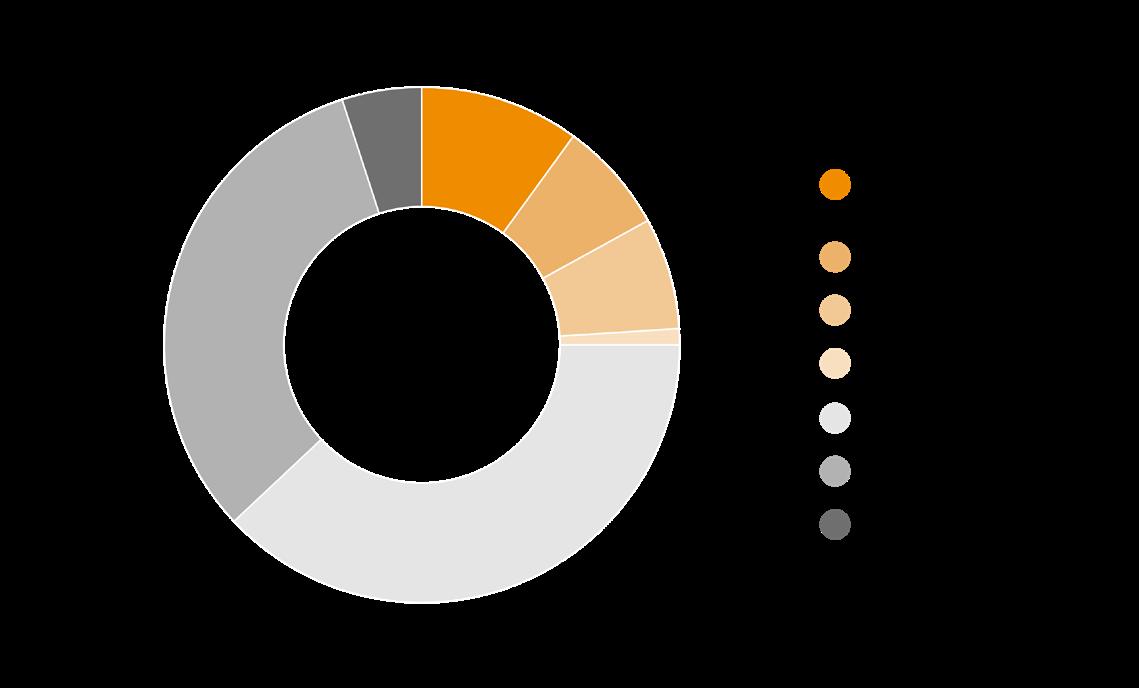
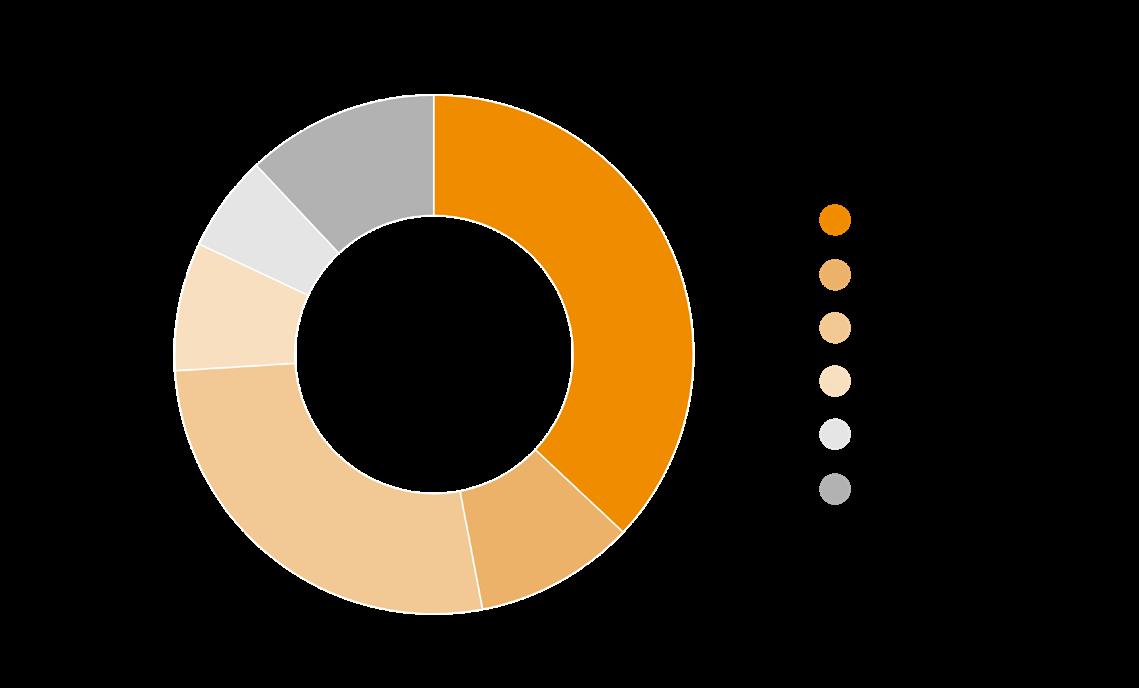
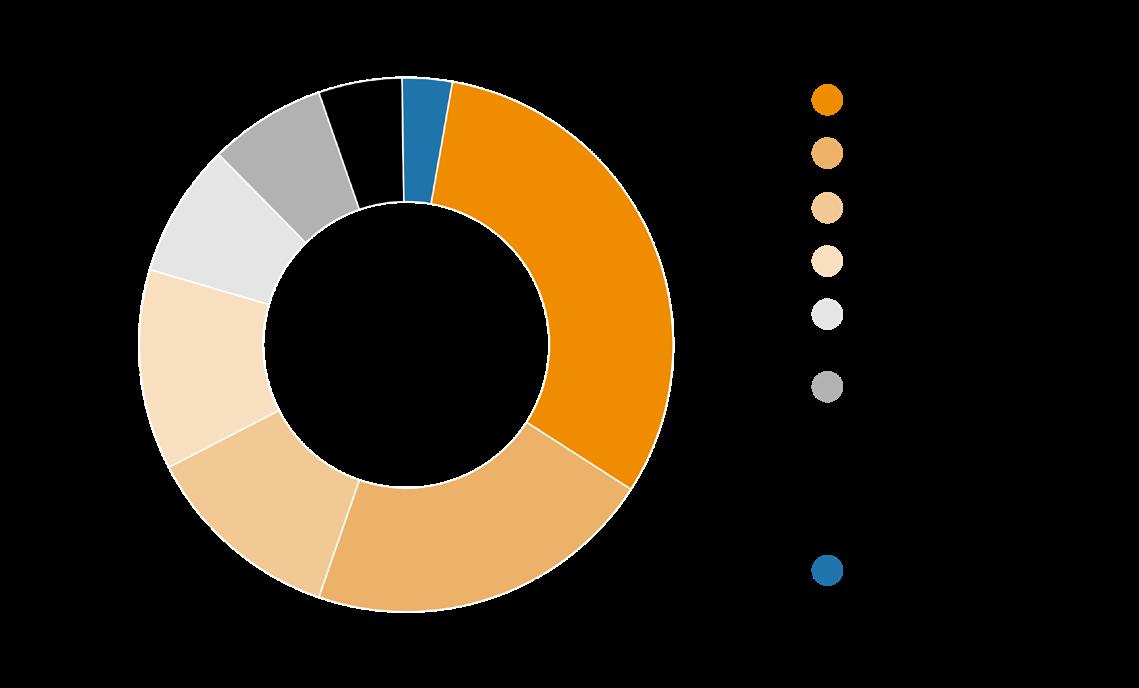
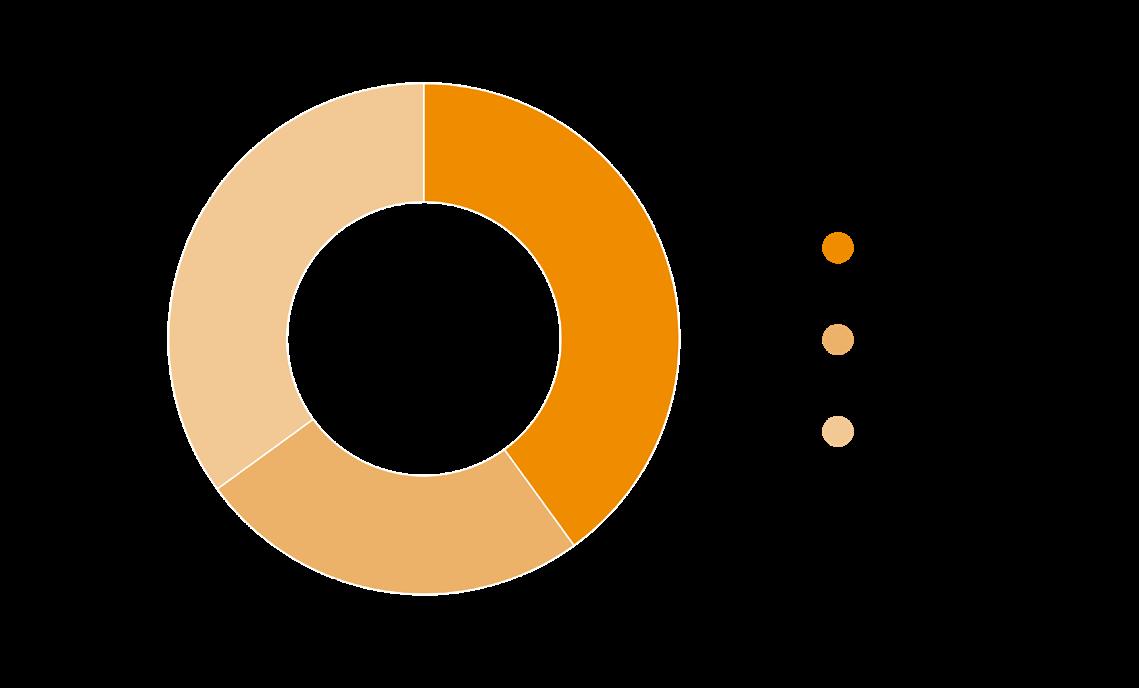
Despite high geopolitical volatility, 46% of global allocators plan to increase hedge fund allocations, with institutional confidence reaching its highest level across all alternative investments.
A striking 40% of allocators are actively seeking new hedge fund partnerships rather than reinforcing existing relationships (just 13%), signalling a fundamental shift from relationship maintenance to opportunity hunting. 3
An overwhelming 56% cite geopolitical tensions as their primary allocation concern, yet this anxiety translates into strategic opportunity rather than defensive paralysis amongst sophisticated institutions.
Over half of the allocators (51%) have actually increased their return expectations compared to twelve months ago, suggesting volatility is viewed as alpha generation opportunity rather than threat.
Two in five allocators prefer separately managed accounts, driven primarily by capital efficiency demands, followed by transparency and customisation requirements across different regional hubs.

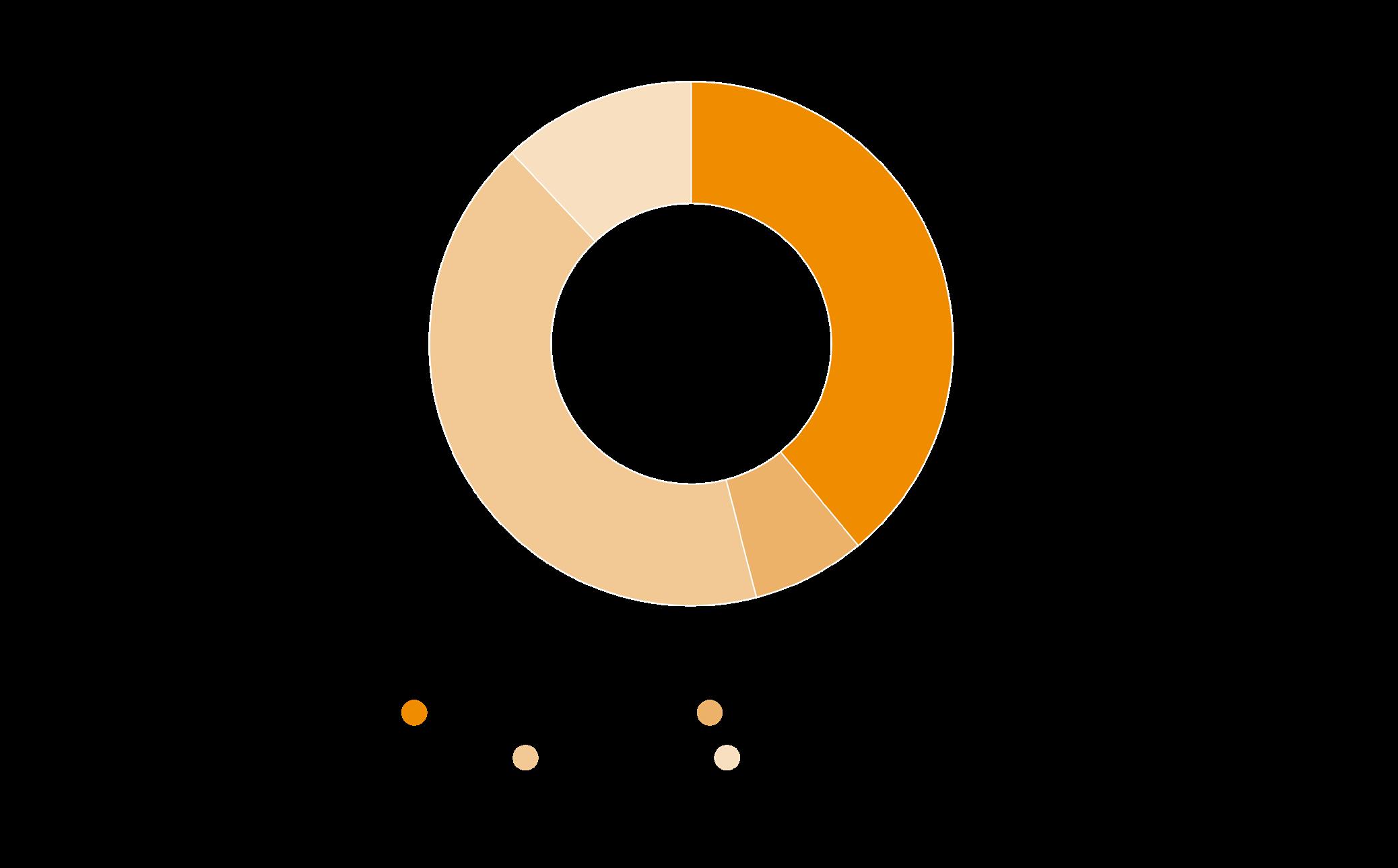
Source: Hedgeweek-AIMA H2 2025 Allocator Survey
The geopolitical catalyst: chaos as opportunity
The opening months of 2025 have resembled a geopolitical pressure cooker, with sharp policy shifts and elevated uncertainty creating what BlackRock describes as “an evolution of the new regime of transformation we have been in for a few years.” Rather than retreat, many allocators appear to be leaning into this complexity.
“The median manager in the equity market neutral universe is generating more alpha over the last three years than they have in years,” Adam Singleton, CIO of External Alpha at Man Group, notes. “You have to go back to 2015 to find a similar window, and before that, preGFC.”
“When interest rates are zero, lots of bad decisions get made for free,” he observes. “Now, with interest rates at a more sensible level, markets behave better.”
Alternative investment dominance
The survey reveals the extent to which alternatives have captured institutional portfolios. Two in three allocators maintain over 25% alternative allocations. This isn’t incremental portfolio adjustment – it represents a fundamental shift in institutional asset allocation philosophy.
Hedge funds lead this alternative investment charge, with 39% of allocators planning to moderately increase hedge fund allocations and 7% planning significant increases. According to Tom Kehoe, managing director and global head of research and communications at AIMA, the world’s largest alternative investment trade body, this 46% combined positive sentiment reflects the fact that “investors have the highest level of confidence allocating to hedge funds over any other alternative investment.”
The confidence is underpinned by solid performance. Hedge fund performance has been strong year-to-date when compared to investments in public markets or, more pertinently, a balanced portfolio. Average hedge fund performance through H1 is approximately 7% net of fees. Some hedge funds are doing better than others – the top decile of funds are up 20%+ on the year whilst the bottom decile are down in a range of 10-15%.
Amid the volatile market conditions being currently experienced, fuelled by geopolitical tensions and unpredictable shifts in fiscal and monetary policy, hedge funds have consistently demonstrated their ability to deliver for investors. Whilst such conditions can unsettle performance in traditional asset classes, they can also provide fertile ground for hedge fund strategies. With their flexibility to invest both long and short across a wide range of asset classes and securities, hedge funds are well positioned to deliver downside protection, reduce overall risk in an investor portfolio, and capitalise on market dislocations.

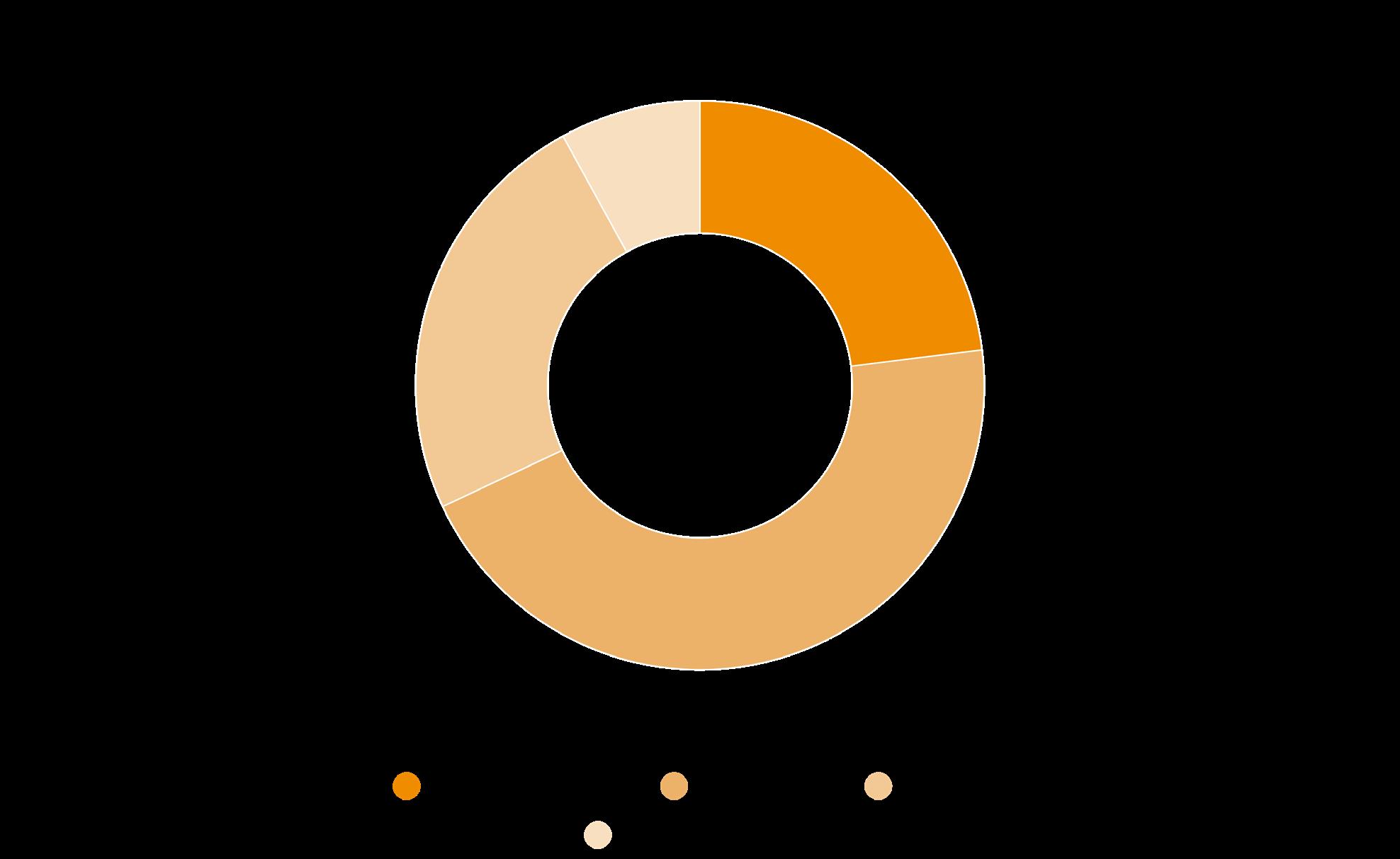
Source: Hedgeweek-AIMA H2 2025 Allocator Survey
Allocator confidence remains remarkably robust despite external uncertainty. Twothirds of our allocator survey base expresses confidence or very high confidence that their hedge fund portfolios will meet targets. More tellingly, 51% have actually increased return expectations compared to twelve months ago, suggesting that volatility is viewed as an opportunity rather than a threat.
“Hedge funds have been performing well, once you cut through the noise,” explains Adam Singleton. He sees allocators turning to hedge funds as “a way to diversify risks and to allocate to slightly more liquid strategies, which can be a bit nimbler and benefit from the volatility.”
Kehoe provides context for this confidence by highlighting what investors fundamentally expect from hedge funds: “preserve their wealth (investment), manage their risk (against any downside), deliver outperformance (mostly uncorrelated to anything else they own in their portfolio).” He emphasises what many have been saying since the start of this year, that in periods where markets have corrected or look increasingly uncertain, hedge funds seem to be one of the safer harbours for allocators to alternatives.
Perhaps the most striking finding in the Hedgeweek-AIMA H2 allocator survey was
the hunger for new manager relationships. Two out of five allocators are primarily seeking new hedge fund managers, compared to just 13% focused on re-investing with existing partners. This represents a fundamental shift from relationship maintenance to opportunity hunting.
“The new manager landscape is quite fertile right now,” Singleton explains. “When hedge funds are doing well, you get more people with good track records spinning out into their own businesses.” He’s particularly drawn to managers who are “really disciplined on the capacity front, even if they’re doing really well right now.”
Multi-family office Delta Momentum Group’s Managing Director and Partner André Popov told Hedgeweek that the shift toward new manager relationships aligns closely with what he is also seeing. “We’re actively exploring opportunities beyond our existing roster –particularly where we see differentiated edge, stronger alignment, or niche domain expertise,” Popov explains.
Strategy preferences: quality over quantity
The strategy preference rankings reveal allocator sophistication in navigating current market conditions. Long/short equity emerges as the clear favourite, scoring 6.98 out of 10, whilst global macro follows at 6.93 – a ranking that aligns perfectly with the current environment’s emphasis on policy uncertainty and cross-asset volatility.
1.4 Return expectations vs 12 months ago
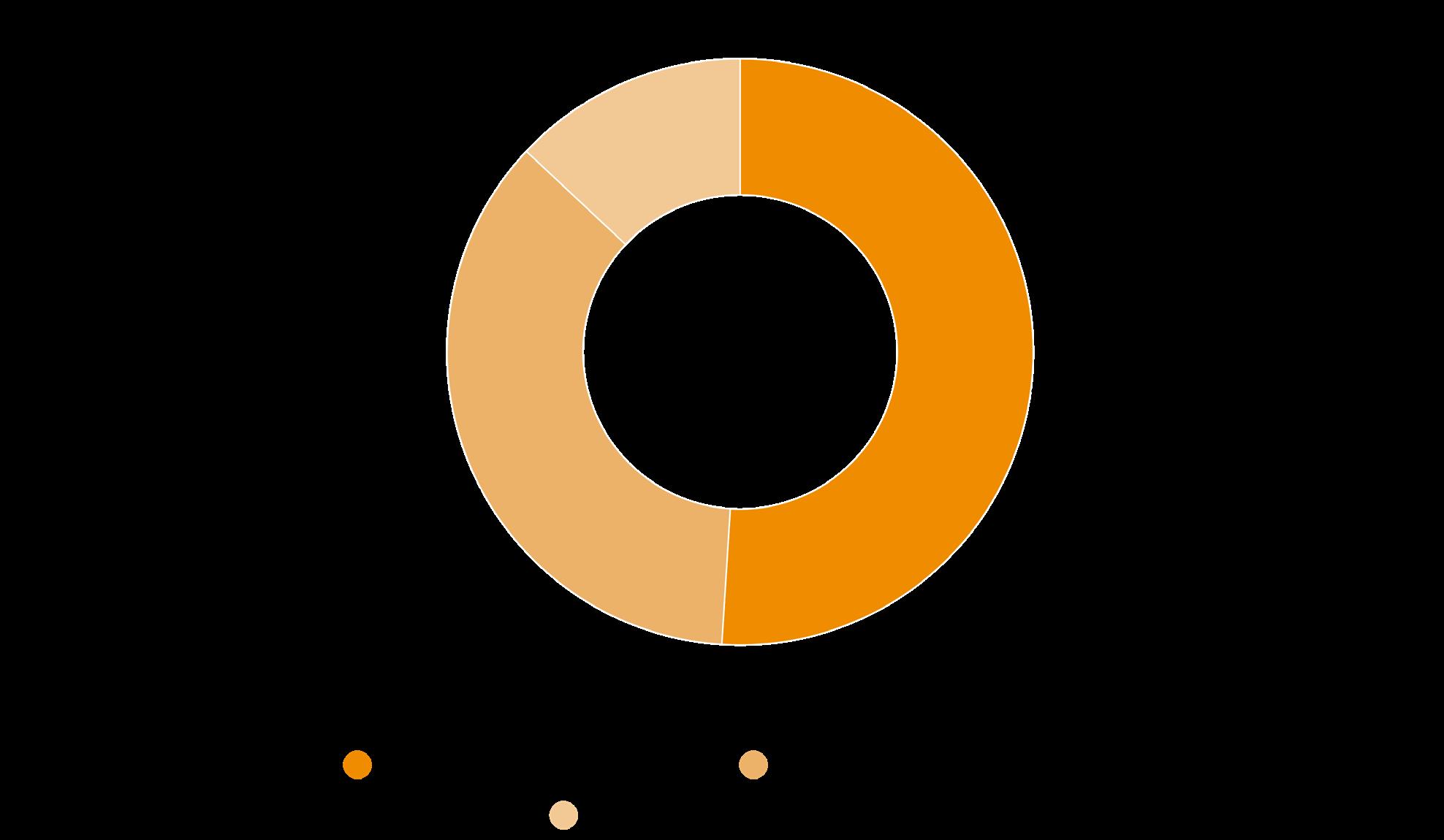
Source: Hedgeweek-AIMA H2 2025 Allocator Survey
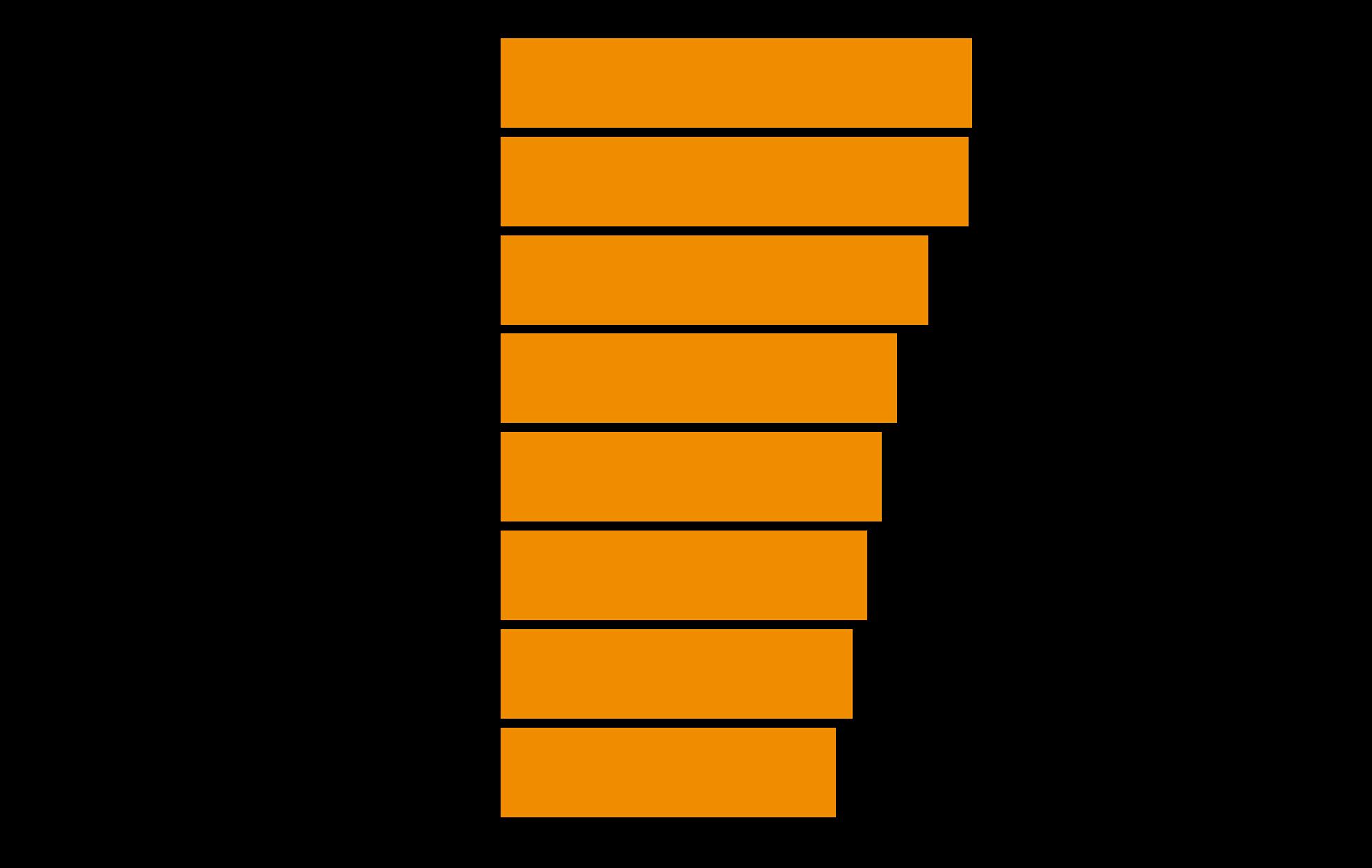
Source: Hedgeweek-AIMA H2 2025 Allocator Survey
The preference for long/short equity reflects its historical performance during market corrections and drawdowns.
Singleton observes that equity markets “just appear to be rewarding the kind of things hedge funds do” right now. He attributes this to structural shifts: “We went through a period where money was coming out of active and going into passive, plus interest rates were essentially at zero. Now those two things have reversed.”
Market neutral strategies complete the top three at 6.33, offering what AIMA’s Kehoe describes as “pure alpha generation divorced from broader market movements.” He notes that investors increasingly recognise how “the ability to generate returns independent of market direction becomes increasingly valuable” during periods of heightened volatility.
This appetite for diversified alpha sources is echoed across the industry. Kim Bang, Managing Partner at Prolific Capital Markets, reports continued interest in “diversification into alternative absolute return and risk mitigating strategies.”
The macro resurgence particularly catches attention. Kehoe suggests that some investors are starting to characterise this as the beginning of a “new golden age for macro investing” – a view supported by how certain macro hedge funds have successfully navigated recent interest rate cycles and commodity market volatility.

YASHAR JEDARI
Senior Director, International Financial Services at AlphaSense
With 58% of allocators citing geopolitical tensions as their top allocation driver, what specific research intelligence demands are you seeing from hedge fund managers? How has geopolitical research evolved?
The surge in geopolitical risk as a primary allocation driver has significantly reshaped hedge fund research behaviour. Managers are demanding faster, deeper, and more contextual geopolitical intelligence, with a focus on real-time impact analysis. AlphaSense allows them to dive deeper and more quickly into areas of interest such as event driven flashpoints like US-China relations, Middle East instability, elections in major economies, and semiconductor supply chain tensions. Funds are seeking information on related impacts to sectors, from energy and defence to semiconductors.
Our product has the ability to decipher vast amounts of data from government transcripts to sanctions data to expert transcripts to broker research and news aggregation and output it in a very actionable and easy format for managers to understand the underlying trends. As you can imagine, there might be a lot of noise when trying to search through these kinds of sources— our AI has the ability to cut through all of this noise and get you exactly the information you need extremely quickly. We also have the ability
to produce detailed yet concise generative content to focus your research.
What aggregated trends are you seeing in research activity and search behaviour across your hedge fund and allocator client base? Any patterns that align with our survey findings?
We’re seeing a marked increase in search behaviour tied to geopolitical topics. Reflecting the allocator rotation into private markets, we’re seeing a material increase in searches for “private credit,” “distressed opportunities,”and “real estate repricing”. Inflation and central bank policy continue to command searches. AI is a huge topic for our clients beyond just investing – they’re trying to understand how to leverage AI and AI related tools to operationally become more efficient as organisations. There are some clear patterns in terms of what hedge funds are concerned about right now.
In an environment where 28% of allocators are negotiating lower fees while demanding sophisticated analysis, how are managers balancing research costs with the need for comprehensive intelligence?
Managers are increasingly leveraging AI to compress the research lifecycle – from idea generation to validation – without increasing
headcount or compromising rigour. For example, our AI enabled search summarises 10-Ks, earnings calls, and broker research in seconds, allowing analysts to focus on analysis rather than search. AlphaSense removes cumbersome search processes whilst still giving clients the knowledge that the content they’re searching is reliable and trustworthy, focusing client time on more of what they’re great at, which is adding real value to their customers. Cutting through the noise with AI that is trained on premium business and financial content allows our customers to both be fast and detailed. They do not need to compromise one for the other.
Are you observing shifts in research focus areas that align with strategy preferences we found— particularly around long/short equity dominance vs emerging strategies like digital assets?
L/S equity managers are heavy users of our product. Allocators’ demand for “differentiated alpha” is pushing L/S equity funds toward even deeper and more differentiated insights like our proprietary expert transcript library where we produce thousands of proprietary conversation transcripts every month from our investor clients talking to experts across different industries and geographies. The hunt for “real Alpha” is as fierce as ever. We are also seeing a trend where digital assets are moving from the fringe

into more structured strategy evaluation by allocators and diversified funds. There is a noted increase in interest in tokenisation, crypto and blockchain and its impacts on the broader financial landscape outside of pure speculation.
How is the democratisation of research tools and AI affecting the competitive landscape between large and small hedge fund managers?
The capability and power of AI tools like AlphaSense enable smaller hedge fund managers to operate with a rigour and scale they previously wouldn’t have been able to reach, levelling the playing field somewhat. Having said that, this requires leveraging the right tools and the right partners in order to not fall behind. We are seeing the larger hedge funds devoting a lot of research and power to decisions around the AI tools and partners they are pursuing. There is a lot of noise out there and many AI startups promising the world. You have to make the right decision with your AI partners that sets you up for long-term success and impact. For allocators seeking differentiated, cost-effective partnerships, research democratisation is making boutique funds more viable than ever. And in a world where 45% of allocators are actively looking for new relationships, that creates real capital-raising opportunities.

Geopolitical tensions: the primary concern
The survey reveals that geopolitical tensions (including trade wars and tariffs) dominate allocator concerns, cited by 56% of respondents as their primary influence on allocation decisions. This figure underscores how policy uncertainty has moved from background noise to foreground priority in institutional decision-making.
Popov agrees that “geopolitics now plays a far more prominent role in our allocation process.” His firm constantly evaluates “how strategies behave under different macro regimes and tail scenarios.”
For Delta Momentum, it’s not simply about downside protection. “We want managers who can pivot quickly, preserve optionality, and help us think through second- and third-order effects of global shifts,” Popov explains. This reflects a broader institutional shift towards viewing policy uncertainty as requiring adaptive rather than defensive strategies.
Other primary concerns for allocators include market volatility, which follows at 42%, with monetary policy and inflation expectations each garnering 39%. The hierarchy of concerns reflects a sophisticated understanding that policy-driven volatility differs fundamentally from market-driven volatility, requiring different hedging and positioning strategies.
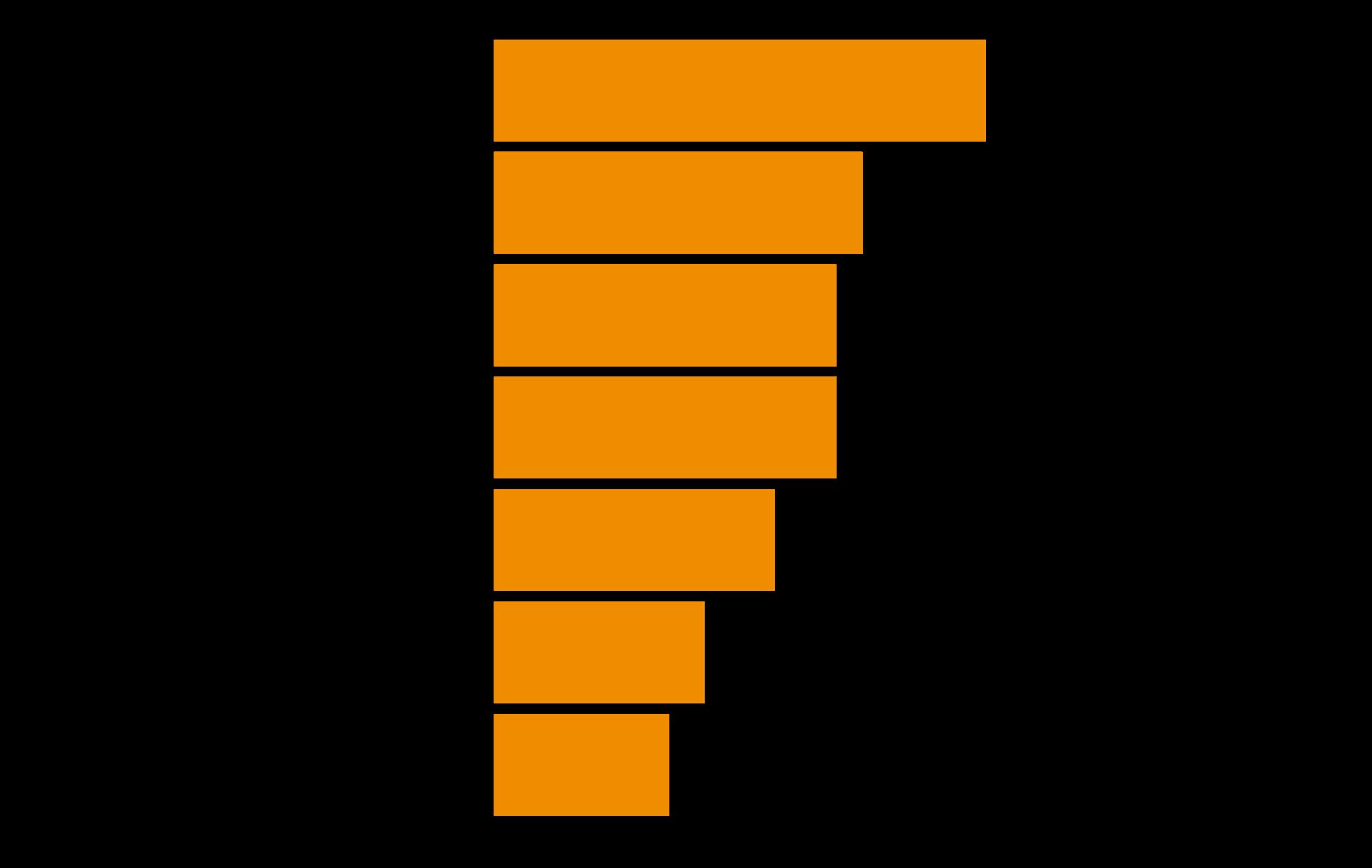

Managing Director – Prime Brokerage & Institutional Trading at IG Prime
With over two in five allocators seeking new hedge fund managers, what issues do you see emerging managers face when trying to scale effectively and meet institutional expectations?
This data is very insightful because it challenges the perceived narrative that new managers are losing out in capital allocation, especially relative to established fund managers. In reality, there’s genuine demand for managers with good strategies and sound business ideas.
Emerging managers face a tricky dynamic – one where they need to demonstrate operational readiness from day one but equally face important cost pressures. Our own research shows 45% of hedge funds expect costs to rise by more than 6% in 2025, with regulatory compliance and technology as key drivers.
At IG Prime, we provide institutional infrastructure at emerging manager economics. We offer multi-asset access, sophisticated execution tools and institutionalgrade risk controls with flexible pricing that scales with growth. Crucially, we have no minimum AUM or fee constraints because we want to attract talent and help our clients scale.
Separately managed accounts (SMAs) are clearly rising in popularity among allocators. What are the biggest operational challenges this creates for hedge fund managers and how are you addressing them?
SMAs are both an opportunity and a challenge. They represent stable capital and a vote of confidence but create massive operational complexity. Our own research identifies this as critical, with 58% of managers saying digital transformation is their top strategic priority, largely driven by SMA operational demands.
We help our clients by supporting multiple account allocations on our platform. Where an SMA might want a carve-out with different leverage, for example, we help the manager with the operational and technology support they need in order to run different strategies across the platform, handle splits across order execution and manage multiple managed accounts.
We also want to more efficiently support the SMAs themselves and are conscious of SMAs wanting AI-driven capabilities where they can potentially get information on manager performance, volatility impact or strategy attribution through natural language queries from their platforms. The market isn’t quite
there yet but it’s a space we are keen to push into. This is what the industry is heading towards, and we want to be among the first to get there.
Allocators are looking for diversification of strategies and are increasingly interested in niche players. How does your platform accommodate managers running diverse and niche strategies?
We’ve built our business to be uniquely positioned for niche strategies. Our platform supports multiple asset classes and instruments – equities, commodities, indices, futures, FX, and notably crypto, which many primes don’t offer comprehensively.
The current macro environment is driving pivots to macro strategies due to geopolitical dynamics, and allocators are backing performance in these areas. In crypto specifically, there’s significant activity and allocators are no longer shying away from digital assets. We are seeing regulatory clarity in several jurisdictions globally driving uptake of these strategies.
We can support various strategies within a single manager or multiple funds with different allocators. This flexibility is crucial as we’re seeing large multi-strategy funds engage with us on propositions they wouldn’t have
considered before, precisely because we offer niche capabilities as part of a broader offering.
What technology trends will shape prime brokerage over the next 12-18 months?
AI is definitely the next frontier, but I see three key trends. First, the automation of operational processes, particularly in compliance monitoring and client reporting. The regulatory burden continues to increase, and managers need to demonstrate due diligence and operational resilience.
Second, integrated solutions. The market remains fragmented, but we’re seeing consolidation through mergers and partnerships to offer more comprehensive services. We’re investing to compete with these consolidated offerings and provide a unified platform experience.
Third, maintaining high-touch client service alongside automation. We offer a hybrid trading desk where clients can call and discuss trade economics before execution –the kind of high-touch service you’d get at a tier-one bank, but available to all our clients. Some things a bot simply can’t do, so personal service remains crucial even as we automate operational processes.
2.2 Allocator fee expectations
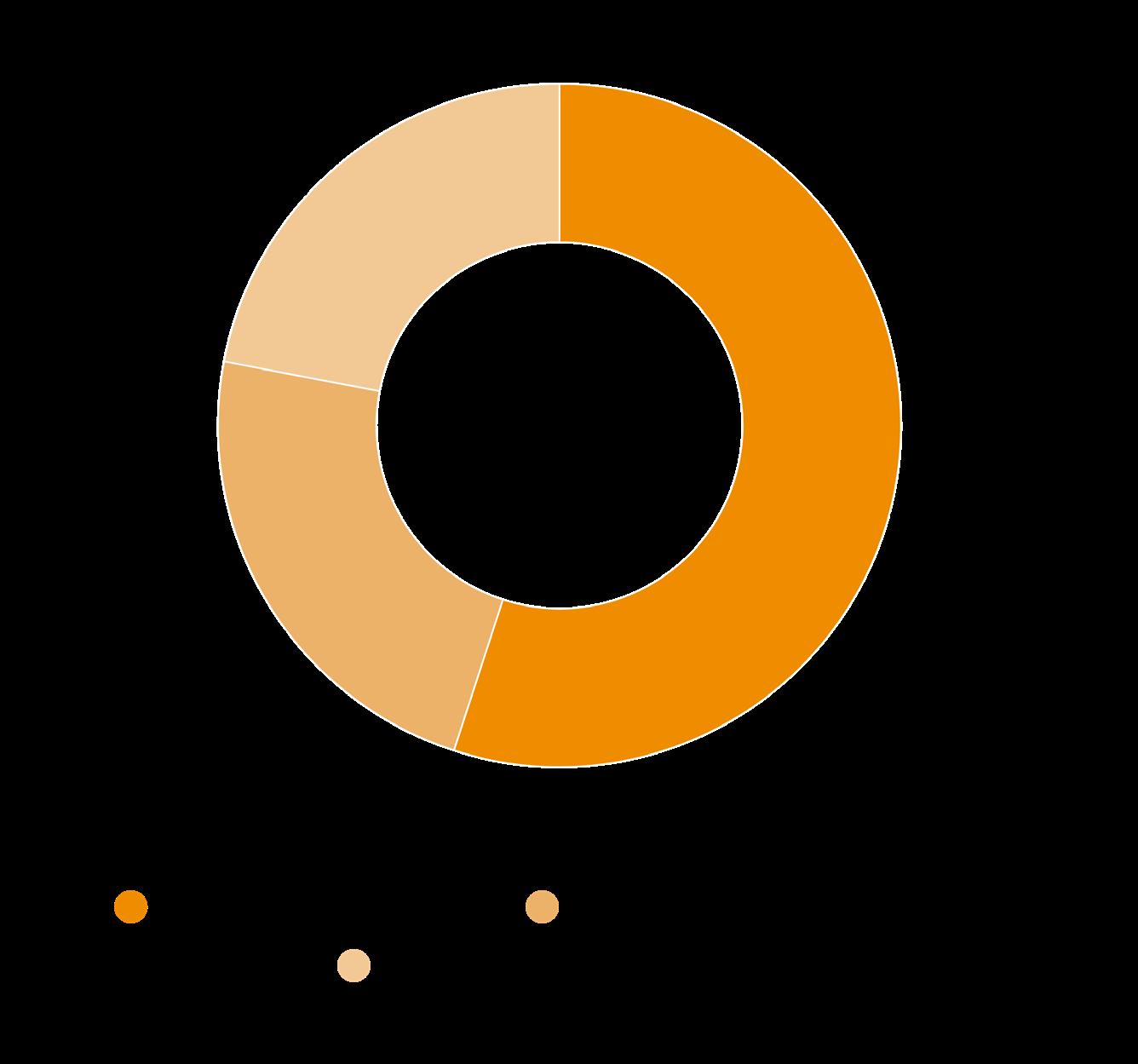
dynamics: stability amid pressure
Despite ongoing industry pressure on fees, the survey reveals surprising stability. Just over half of allocators expect fee arrangements to remain unchanged, suggesting a more nuanced relationship between cost and value than simplistic fee compression narratives suggest.
Almost a quarter are actively negotiating lower fees, likely reflecting standard institutional practice rather than widespread dissatisfaction. More tellingly, 22% express willingness to accept higher fees for certain strategies or managers, indicating that performance differentiation remains paramount.
“It’s a marketplace – when performance is good, more people want to buy, so the price should go up,” Singleton notes. He emphasises that fee discussions have become “more nuanced,” focusing on “what you’re actually paying for” rather than blanket compression.
This fee stability occurs within a broader context of evolving manager-allocator relationships. The strong preference for SMAs reflects institutional demands for transparency, risk management, and regulatory compliance that extend beyond simple cost considerations.
SMA continue to shine
Source: Hedgeweek-AIMA H2 2025 Allocator Survey
Two in five allocators in our mid-year survey prefer SMAs, reflecting evolving institutional needs around transparency, risk management,
and regulatory compliance. This preference varies dramatically by region, creating opportunities for managers who can accommodate bespoke structures whilst maintaining operational efficiency.
When asked why SMAs were preferred, ‘capital efficiency’ emerged as the single most cited keyword amongst allocators, followed closely by ‘transparency’ and ‘customisation’.
“The big push has been into capital efficiency,” Singleton seconds. He explains that allocators use managed accounts “as a way to essentially gear up the returns they’re getting from the hedge fund piece” to compete with traditional assets’ long-term performance.
Regional variations: a tale of four hubs
The regional breakdown reveals distinct allocation philosophies and preferences:
UAE/Abu Dhabi emerges as the most dynamic hub, with 67% of allocators preferring SMAs and demonstrating the highest fee flexibility. This preference for SMAs reflects sophisticated risk management capabilities and desire for transparency, whilst fee flexibility suggests confidence in manager selection capabilities.
Singapore allocators display almost universal appetite for new hedge fund managers, with 100% citing geopolitical concerns as a primary driver. This suggests regional allocators view current volatility as an opportunity to refresh their manager rosters and capture alpha from emerging strategies.
Hong Kong allocators maintain their traditional focus on volatility management, with all respondents prioritising market volatility concerns and showing strong preference for managed futures/CTA strategies. This regional specialisation reflects Hong Kong’s role as a gateway to China’s volatile markets.
European allocators, dominated by wealth managers (23%) and family offices (32%), show conservative approaches to digital assets (15% interest) and lower SMA preference (21%). Market volatility ranks as their top concern (54%), suggesting a more risk-averse approach than their APAC counterparts.
Beyond Hedge Funds: The Alternative Investment Landscape
The survey reveals growing institutional appetite across alternative investment categories. Infrastructure leads with +26% net positive sentiment, reflecting its appeal as an inflation hedge and source of steady cash flows in an uncertain policy environment.
Digital assets show +20% net positive sentiment, suggesting institutional warming towards cryptocurrency strategies, particularly given evolving regulatory approaches. Private credit maintains +18% net positive sentiment, reflecting its role in filling traditional bank lending gaps and providing floating-rate exposure.
This diversification creates a virtuous cycle for hedge fund managers who can demonstrate differentiated alpha generation capabilities.
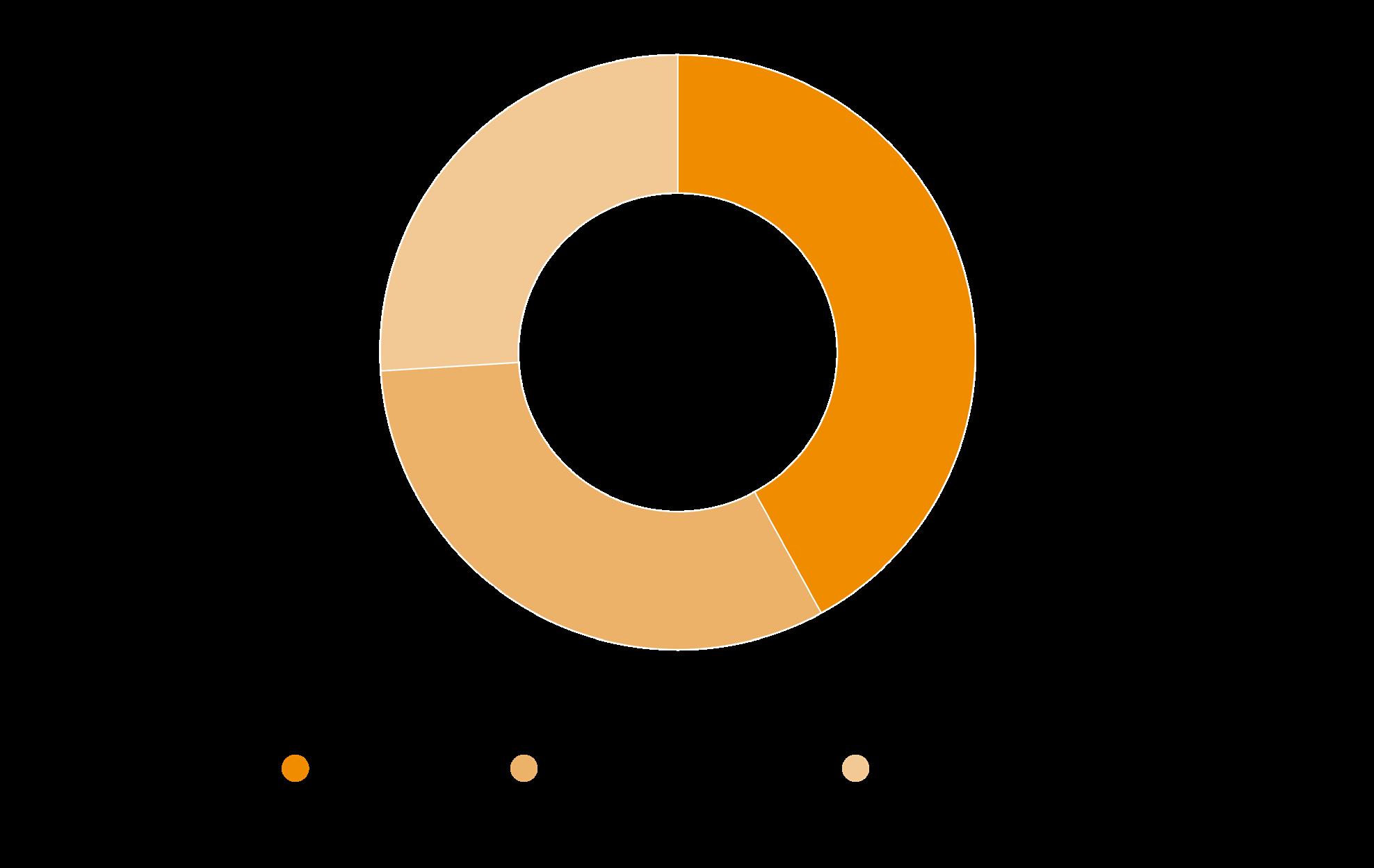

Source: Hedgeweek-AIMA H2 2025 Allocator Survey
Rather than competing solely with traditional assets, hedge funds increasingly compete within a sophisticated alternative investment menu where performance differentiation becomes paramount.
Looking forward: navigating the new normal
The survey data paints a picture of institutional allocators who have moved beyond crisis management to opportunity identification. Rather than retreating from complexity, they appear to be embracing it as a source of competitive advantage.
The key insight lies in recognising that current market conditions favour active management over passive approaches. As BlackRock notes, “sharp narrative swings mean we can see nearterm selloffs running counter to our tactical views – and view those as opportunities to deploy risk.”
This environment rewards managers who can navigate geopolitical complexity, exploit market inefficiencies, and deliver consistent alpha generation. The survey suggests allocators are positioning themselves to capture these opportunities through strategic partnerships with skilled managers rather than defensive positioning.
The implications extend beyond individual manager selection to broader portfolio construction. In a fragmented, multipolar world, diversification becomes both more complex and more crucial. Hedge fund strategies that can adapt to changing conditions whilst maintaining
downside protection offer compelling value propositions.
The optimism evident in our survey data reflects not naive confidence but sophisticated recognition that volatility creates opportunity for skilled practitioners. As markets continue to evolve, the allocators positioning themselves at the forefront of this transformation appear likely to be rewarded for their conviction.
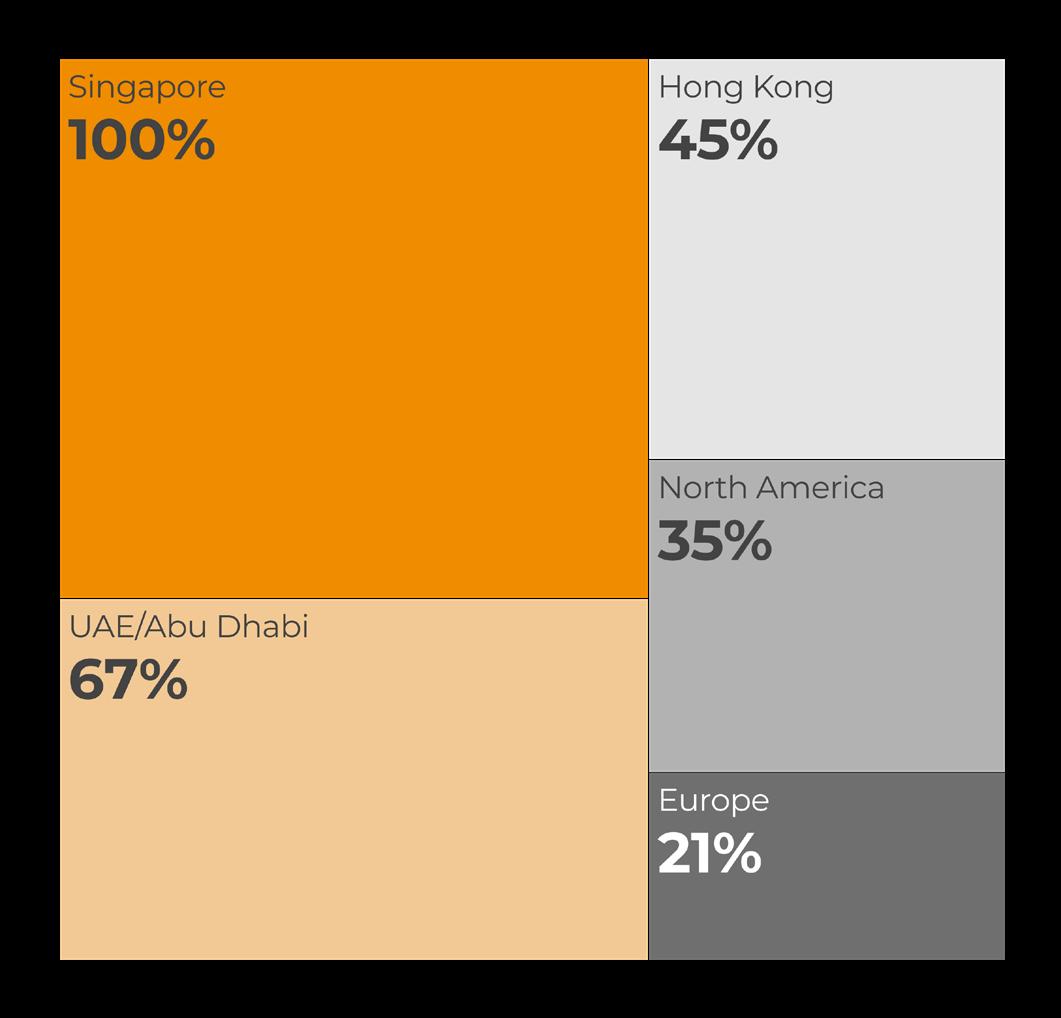
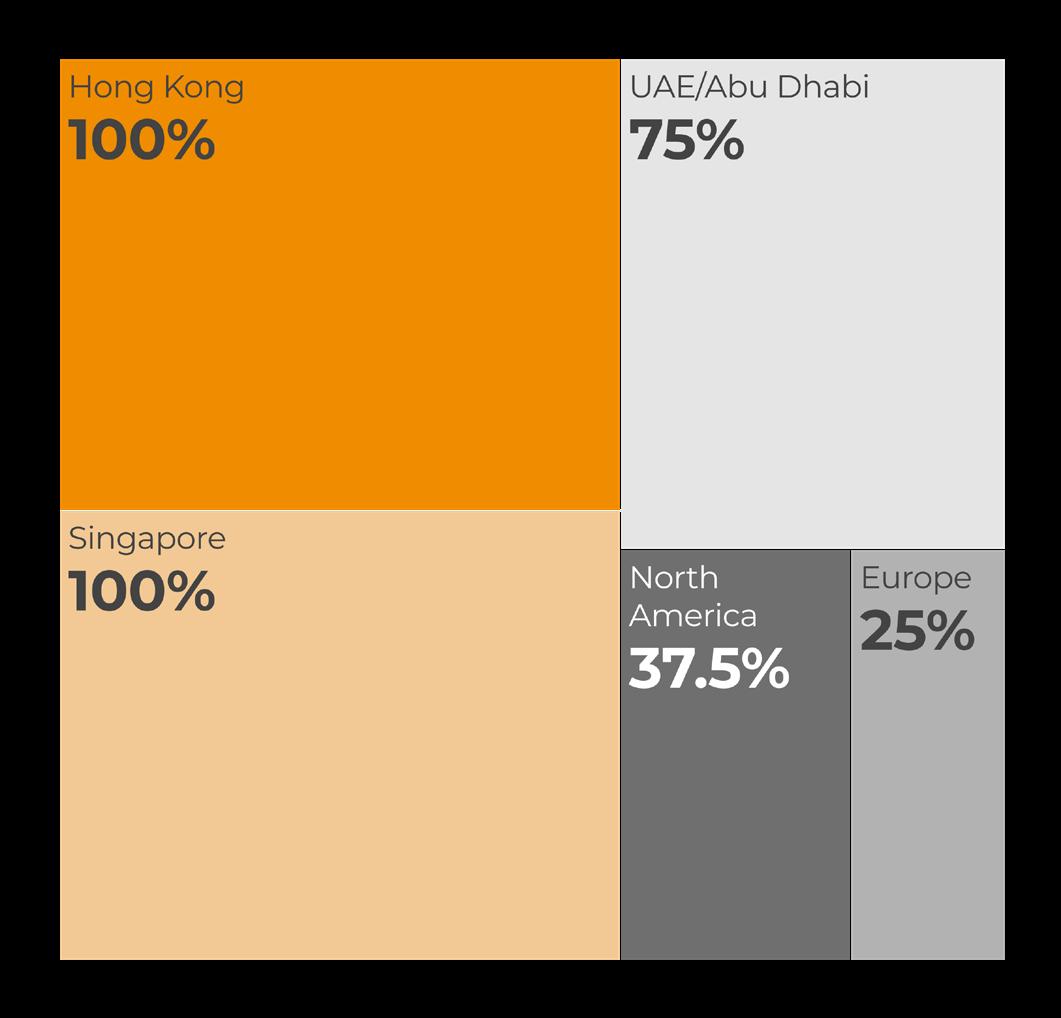
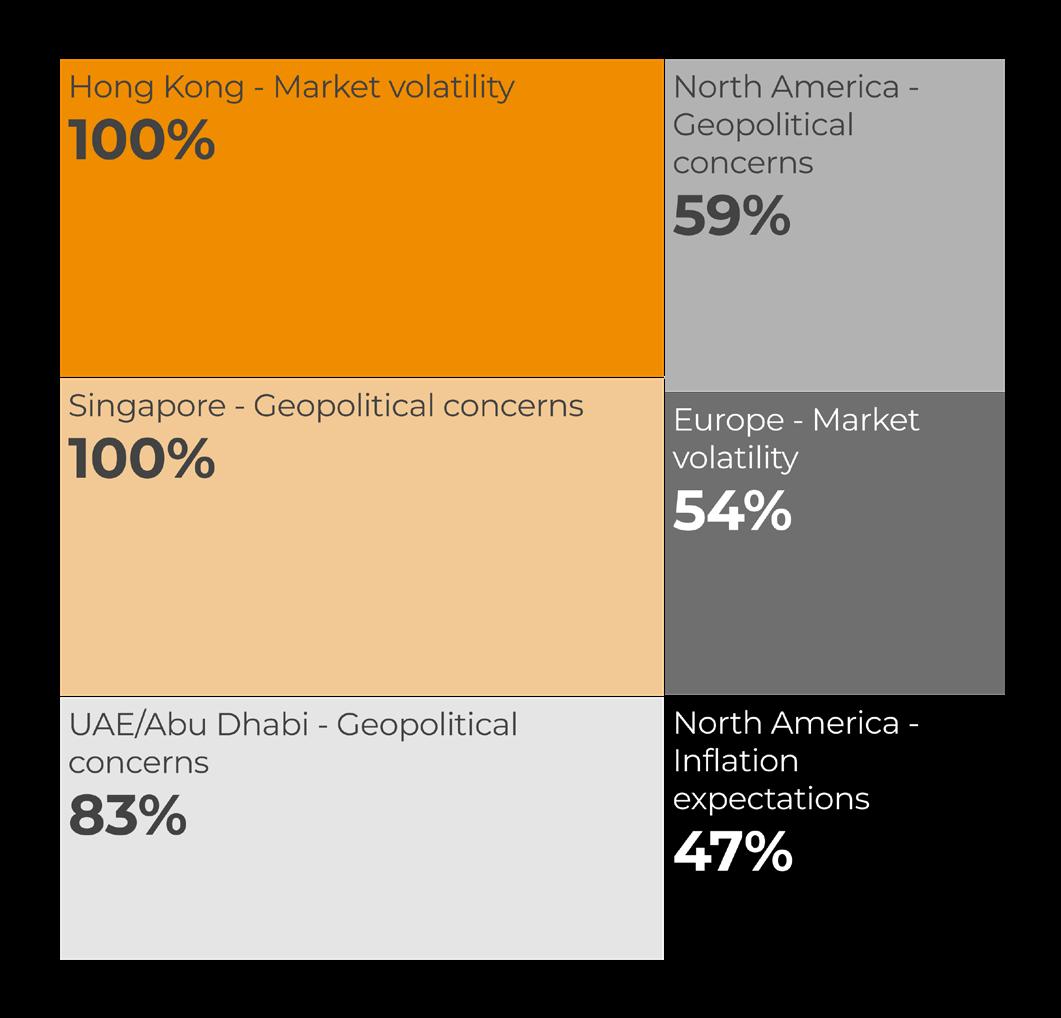
CONTRIBUTORS:
Manas Pratap Singh Head of Hedge Fund Research manas.singh@globalfundmedia.com
Johnathan Glenn Head of Design FOR SPONSORSHIP & COMMERCIAL ENQUIRIES: Please contact sales@globalfundmedia.com